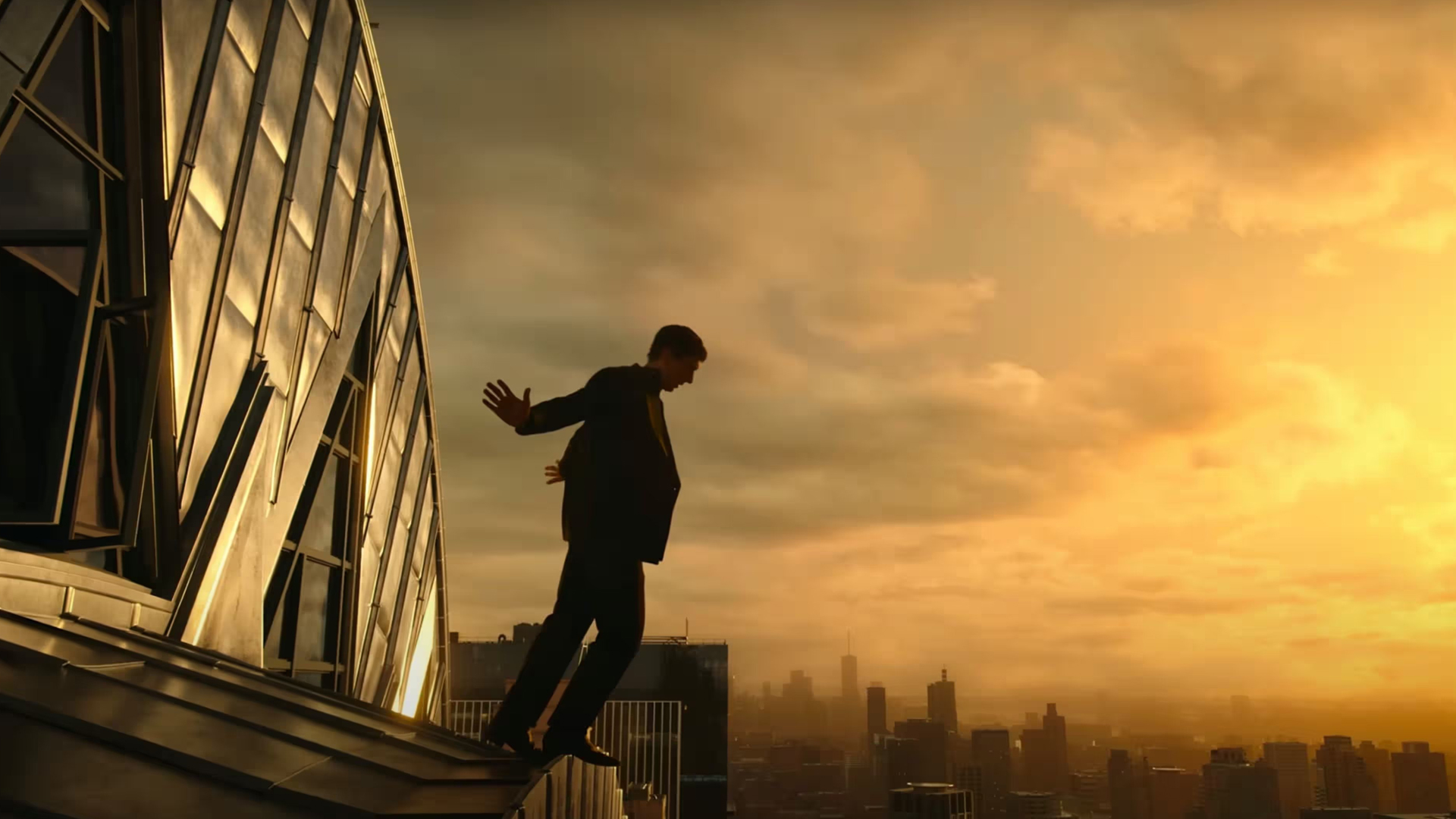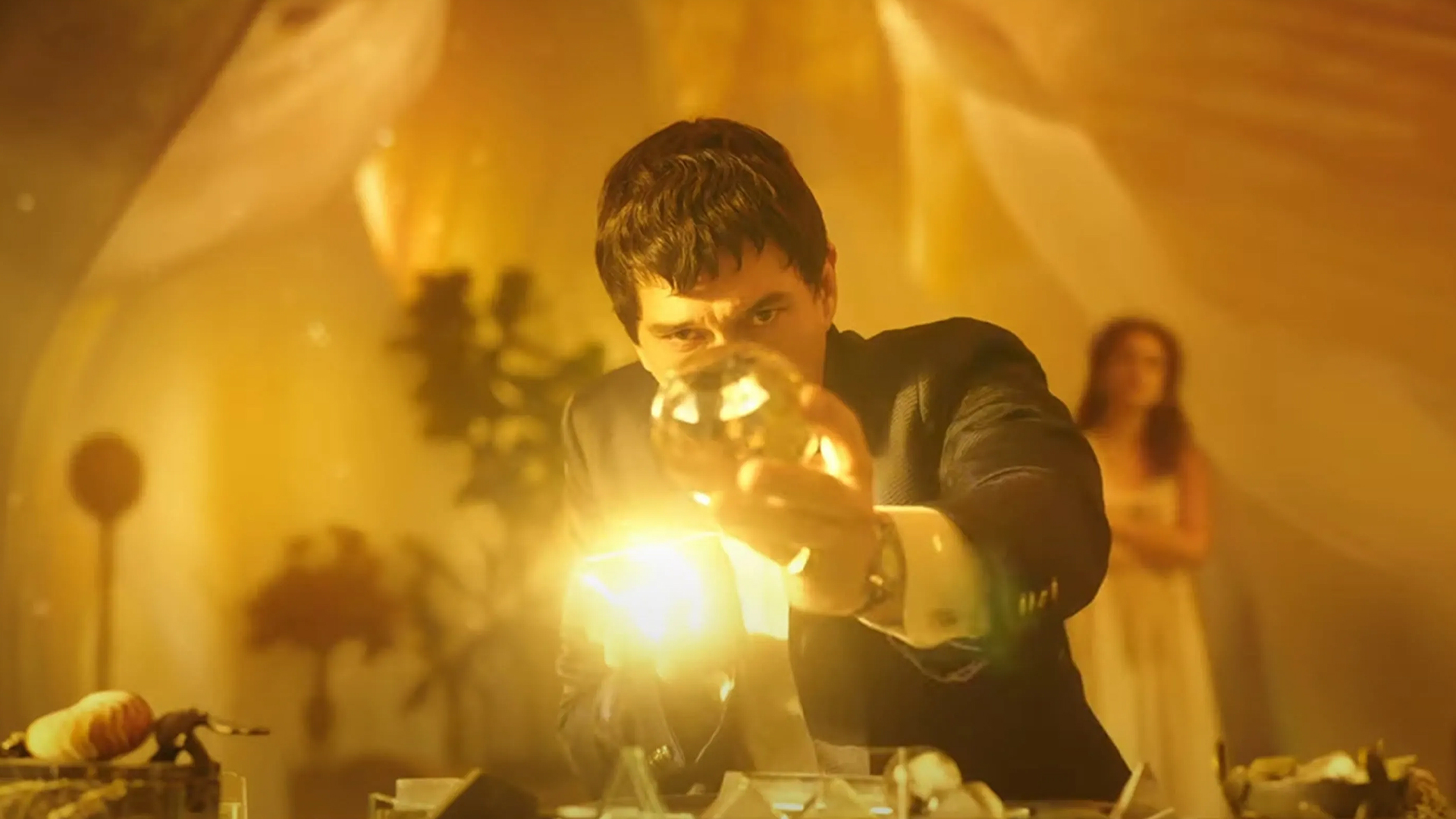Cannes review: Francis Ford Coppola’s Megalopolis demands we lean in all the way

The great Francis Ford Coppola’s mega-expensive passion project is upon us. Rory Doherty soaks in the excess at Cannes.
What good do we have of idealism? Of sweeping visions, cure-all fixes, or radical upheavals promised by individuals? The last thing the world needs is to be overseen by a liberal Ayn Rand protagonist who thinks themselves a “dreamer”. But what if artists were forced to only dream as big as Megalopolis?
Megalopolis, the long-gestating passion project of a world-famous canonised director, asks us what good a genius can bring to our civilisation. It finally arrived, bumped, bruised, and burdened with a fair share of controversy, and stands a lonely, janky dream from a director who didn’t have to make this film, but did have to pay for it himself—all $120 million of it.
It looks like no other film that costs the same amount, it elicits bafflement in nearly every scene, and great streaks of it feel unrealised and cluttered. But the sincerity with which Francis Ford Coppola deploys idealism, complicated by the blatant theatricality of its messaging, results in a film of fierce, confused hope, sustaining madness and frustration for the 2-hour-plus runtime.

Caesar Catalina (Adam Driver) is a master architect who leads the ruthless Design Authority in “New Rome” (a futuristic, renamed New York City), and his charismatic showmanship grants him a much more popular public image than Mayor Franklyn Cicero (Giancarlo Esposito) or the richest banker in America, Hamilton Crassus (Jon Voight). If you couldn’t tell, there’s a big Fall of the Roman Empire going on in Megalopolis (the project has always been Coppola’s “roman empire”), and much of the drama proceeds like strangely translated Ancient Greek play, complete with stagey blocking, embellished performances, and a healthy suspension of material, logical disbelief.
Coppola is by now familiar with digital cameras, using them for his last three self-funded projects, but couldn’t be fairly called a master of them. And yet the composited backdrops, weightless camerawork and gooey CG clash with in-camera projections, shadowplay, and masterful use of freeze frame in a way that confounds and excites the eyes.
Caesar is the inventor of a new, programmable material “Megalon”, which he wants to build cities out of that reduce humanity’s greatest exertions and aid citizens in becoming dreamers. The biggest examples we see of this is making a street-embedded travelator out of light and glowy golden plant limbs that cover people when it rains. (The man can also control time, but we don’t have time to get into that here.)
Caesar’s vision is probably where the biggest gulf between Coppola’s intent and result lies; it’s not remarkably clear what Caesar is actually going to do to New Rome, and it’s not until the last hour that his plans get underway. Megalopolis veers with lopsided, uneven, but determined energy, but largely without a clear, clean sense of direction. As Caesar sways between hope for humanity’s light and cynicism of civilisation’s ruin, the cacophony of venom, noise, and scheming that attempts to thwart him obscures a concrete understanding of the verbose, sometimes delightful, philosophising that comes nearly incessantly out of characters’ mouths.
Megalopolis is more interested in how visionaries are perceived than how their visions actually operate, maybe because Coppola cares more about the philosophy compelling someone to create for the greater good; maybe because he never figured out in 40 years how to actually turn a city into a utopia. Adam Driver has rarely been more locked in with a filmmaker’s vision, and entrusted with Coppola’s flawed hero, he deftly makes sure Caesar is as overwhelmed, inebriated, and dismissive as possible.

Out to get the architect are a bunch of ludicrous villains: on top of the grave and floundering Cicero, there’s Wow Platinum (Aubrey Plaza), a Wall Street reporter in love with the architect but engaged to Crassus for his power, and Clodio Pulcher (Shia LaBeouf), the incestuous clownish heir to Crassus who takes a run at populist politics to ruin Caesar. Plaza’s loony, snarling performance feels in tune with the classic fatales Coppola wants to pastiche; LaBeouf’s aggressive and irritating affections feel like he always has one eye on an audience to see if they’re clutching their pearls.
The relationship that Caesar strikes with Cicero’s daughter, Julia (Nathalie Emmanuel), is where Megalopolis burns most consistently bright; in intimate scenes on clock-face balconies, at opposite sides of a room with Caesar’s elderly mother (Talia Shire), or when Cicero and Caesar discuss an absent Julia in a hushed, darkened apartment. Coppola still has a maestro’s grip on drama, on how themes shape characters, but the destination he guides us to—where Caesar’s utopia is unveiled—reveals the limits of idealism when Coppola wants to extol its virtues.

The fact that Megalopolis’ hope for how to medicate humanity is so burning, even when it feels so transparently misplaced, is what leaves a poignant, aching feeling in your stomach through the truncated finale—this is an ageing filmmaker pouring his efforts into a plea to a younger, more able world. There does lie honesty in Megalopolis’ misguidedness.
Megalopolis may be destined to be a film that frustrates as much as it compels. For every bit that you like it, you will also want more from it. The viewer destined to love it the most may be the most disappointed in it. But if that’s the bargain Coppola strikes with his viewer, he still gladly asks them to lean in all the way, no matter the consequences.
Originally published by Flicks on May 17, 2024



















